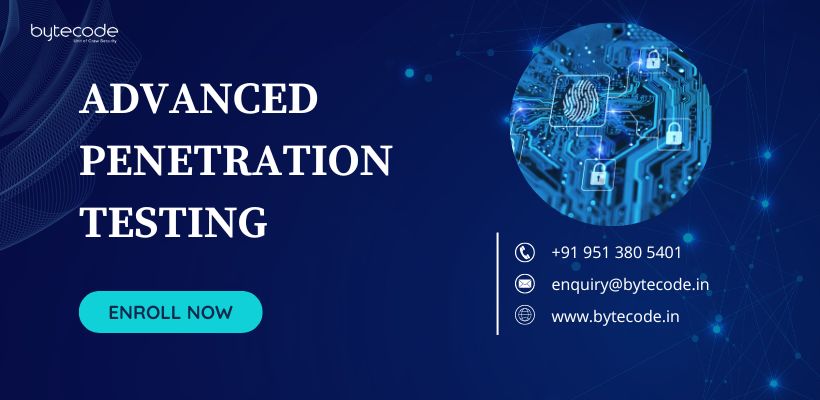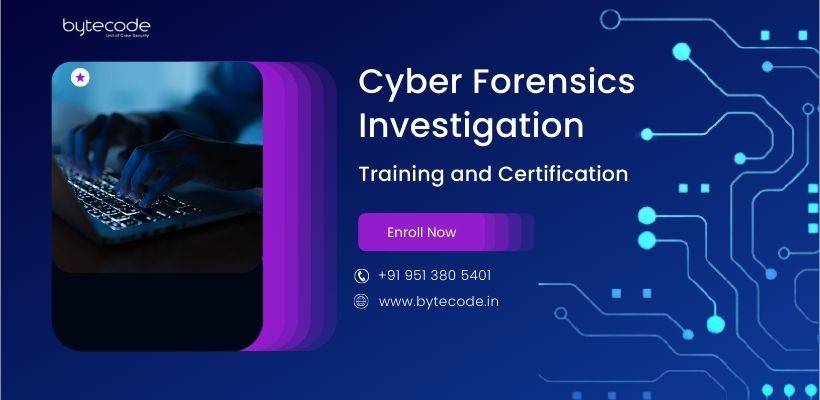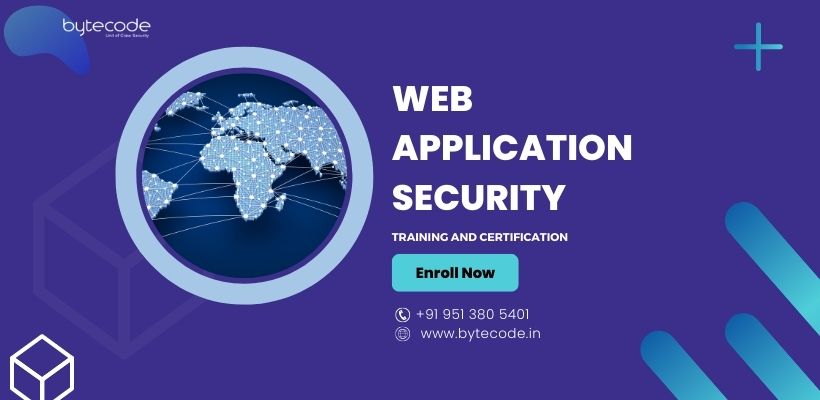Online End Point Security Training Course in Delhi
Endpoint protection: It tracks and hunts the next-level viruses and malware in your endpoint devices from a centralized system. seamless protection that doesn’t come in your typical antiviruses and firewalls. it uses machine learning and fuzzy logic to detect something that bypasses your traditional protection mechanism. do the real things in your real-time protection against new viruses
Students can attend classes from their homes. It takes less time to attend an online class. At the same time, various groups can attend online classes with bytecode Cyber Security From home.
End-Point-Security Course Module
MODULE 01 : Implementing Internet Security Anti-Virus
MODULE 02 : Two-Factor Authentication Implementation
MODULE 03 : Mobile Device Management For Industry
MODULE 04 : Data Loss Prevention Overview & Implementation
MODULE 05 : Security Information and Event Management
MODULE 06 : APT- Attack
MODULE 07 : MITRE Framework
MODULE 08 : EDR
MODULE 09 : MDR
MODULE 10 : Next-Generation Firewall
MODULE 11 : Unified Threat Management
MODULE 12 : Physical Security
MODULE 13 : ISO 27001 Lead Auditor Guidelines
Who this End Point Security Training course is for :
- Security test engineers prefer this course.
- Any IT security analyst or IT professional who wants to learn end-point security.
- Information system security architects.
- Cybersecurity analysts who want to understand end-point security training courses.
- Product security analysts can do this course.
Our Related Course
Google Reviews
Frequently Asked Questions
What is the minimum qualification for cyber security?
For those interested in a career in cyber security, a bachelor's degree in computer science, information technology, information systems, or a closely related topic is usually the lowest educational requirement. In some cases, it may be considered appropriate to replace a formal degree with relevant information technology experience and accredited professional qualifications.
However, interested individuals can sign up for Bytecode Security's endpoint security course, where they will be able to learn from renowned professionals in an excellent mentoring program. In order to be admitted, candidates must present a legitimate transcript from any accredited school, wherever in the world they may have completed their 12th grade.
What are the different types of endpoints?
The subsequent section enumerates the many classifications of endpoints:
- Private Endpoints
- Public Endpoints
- Web Services Endpoints
- Network Endpoints
- API Endpoints
- Storage Endpoints
What is an example of endpoint security?
An example of endpoint security would be the installation of antivirus and antimalware software specifically designed to protect an endpoint from possible damage posed by malware, viruses, and other dangerous threats. Moreover, device control, access control, and patch management are only a few of the tactics that make up endpoint security; they all work toward ensuring the security and currency of every endpoint on a network.
What does an endpoint security engineer do?
The design, execution, and tracking of security protocols for an organization's numerous endpoints, such as desktop and laptop computers, mobile devices, and other internet-connected devices, are among the responsibilities of an endpoint security engineer. This includes developing and putting into practice security measures including firewalls, endpoint encryption, intrusion detection/prevention systems (IDS/IPS), and antivirus software. Monitoring endpoints to spot any security threats is the responsibility of endpoint security engineers. They also have to look into security incidents and provide technical support for any security-related issues.
What are the benefits of endpoint security?
There are some notable advantages associated with endpoint security:
- Enhanced Protection
- Improved Visibility
- Automated Updates
- Increased Productivity
- Cost Savings
What is the best endpoint protection?
The best option for endpoint security depends on personal preferences, budgetary limitations, and environmental circumstances. Symantec Endpoint Protection, McAfee Endpoint Security, Trend Micro OfficeScan, Kaspersky Endpoint Security, Sophos Endpoint Protection, and CrowdStrike Falcon are a few popular options for endpoint protection in the cybersecurity space.
Installing SheildXDR, the Best XDR Solution in India, is another option. This highly reputable Craw Security product is typically extremely inexpensive, reasonably priced, and simple to use. You can reach us by phone at +91-9513805401 to schedule a demo session of ShieldXDR. Our team of highly qualified and experienced penetration testers will handle all the arrangements.
What are endpoint security tools?
Endpoint security tools are specialized solutions that successfully defend a company's or home office's network against a variety of security threats, including ransomware, malware, and other hostile entities that could compromise the underlying IT infrastructures.
What is the highest salary of endpoint security in India?
In India, the maximum remuneration for endpoint security professionals is approximately ₹12 LPA.
Is endpoint security cyber security?
Within the larger topic of cyber security, endpoint security stands out due to its particular scope and concentration. It is vital to emphasize that while endpoint security is closely related to cyber security, it should not be confounded with the overall idea. Protecting the numerous endpoints within a computing network—such as PCs, mobile phones, and other internet-connected devices — against potential cyberattacks requires endpoint security. On the other hand, networks, systems, and data are protected from cyberattacks by a broad range of technologies, procedures, and practices that make up cyber security.
Now, if you've grown interested in learning about endpoint security in Delhi NCR, you can enroll in Bytecode Security's top-notch endpoint security course. It is taught by highly qualified instructors with over 8 years of excellent experience in the fields they specialize in.
What is endpoint in cloud?
Endpoints is a distributed API management system. It provides an API console, hosting, logging, monitoring, and other features to help you create, share, maintain, and secure your APIs. This page provides an overview of Cloud Endpoints for OpenAPI.
Why endpoints are used?
Endpoints give users a way to access resources on a network. Communication entrance and exit points are typically connected to a fixed IP address. Endpoints are employed in order to send and receive data, control equipment, or have access to applications. Furthermore, these systems are used to guarantee security, authenticate, and grant permission.
What is the difference between endpoint security and antivirus?
Endpoint Detection and Response (EDR) With EDR, the difference between antivirus and endpoint security becomes apparent. Antivirus can only block against threats, while endpoint security can find threats dwelling on devices
Are servers considered endpoints?
An endpoint is any device that is physically an end point on a network. Laptops, desktops, mobile phones, tablets, servers, and virtual environments can all be considered endpoints.
Why do I need endpoint security?
Endpoint security software protects these points of entry from the risky activity and/or malicious attack. When companies can ensure endpoint compliance with data security standards, they can maintain greater control over the growing number and type of access points to the network.
Is a switch an endpoint?
In a traditional sense, an endpoint can be a modem, hub, bridge, or switch. It also could be data terminal equipment (such as a digital telephone handset, router, or printer) or a host computer (such as a workstation or a server).
What does endpoint mean in software?
An endpoint is the 'connection point' of a service, tool, or application accessed over a network. In the world of software, any software application that is running and "listening" for connections uses an endpoint as the "front door."
What is end point of titration?
end point: the point during a titration when an indicator shows that the amount of reactant necessary for a complete reaction has been added to a solution.












